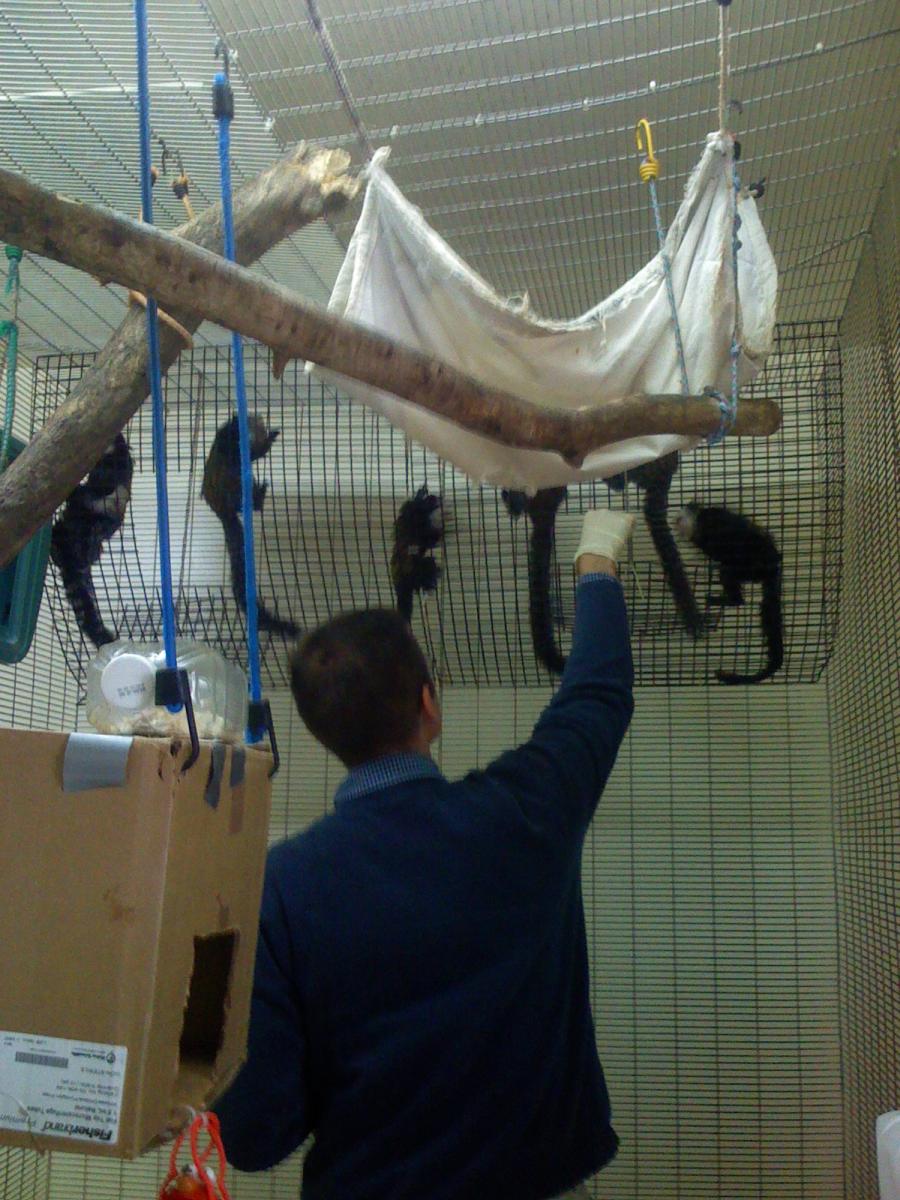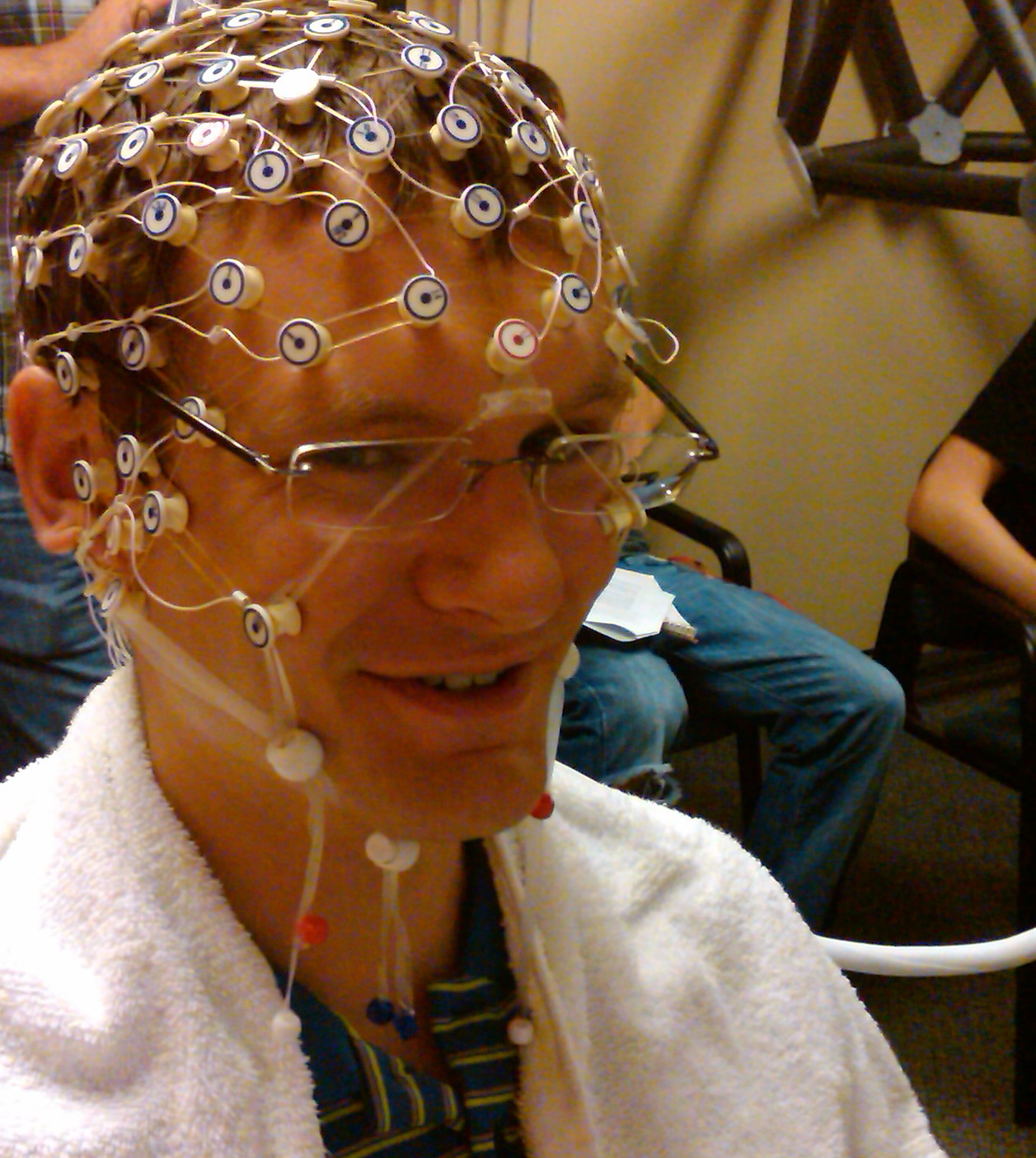Content

The Political Physiology Lab (PPL) is a central part of the Systems Biology of Social Behavior (SB2) initiative at Nebraska, an interdisciplinary group actively supported by the university (in part through a Strategic Cluster grant from the Office of Research) and by the College of Arts and Sciences. The university is committed to making SB2 an area of excellence and, despite the challenging times for higher education across the country, has committed to multiple additional hires in this area. In fact, two individuals—Dennis Molfese and Jeff Stevens—hired through the SB2 initiative are already on campus.
The Political Physiology Lab is currently housed in the Department of Political Science in 530 Oldfather Hall. The lab itself is modest and is basically a large faculty office. Equipment in the lab makes it possible to collect the following physiological variables: electrodermal activity, electromyography (EMG) readings of the usual facial muscles including the orbicularis occuli, corrugator, zygomatic, and levator muscles), respiration, heart rate, impedance cardiography measures, and the combination of these variables that lead to measures such as respiratory sinus arrhythmia and pre-ejection period. It is possible to present a full range of stimuli to participants, including still images, audio, video, and video-audio combinations.
The lab is available for use assuming appropriate approval is obtained from the co-directors and human subjects review. Several students have taken advantage of the equipment. Soon, we intend to secure physiological equipment that will be portable so that we can go to the participants. Currently, however, participants need to come to the lab.
While the lab is a functional physiology lab, even more exciting opportunities come from the warm, ongoing relationships we have with various labs around campus as well as from future plans at the university.
- Professor Michael Dodd in the Department of Psychology has a state of the art eyetracking facility that has been used heavily by people associated with the PPLab.
- Kim Espy and Dennis Molfese are experts in electroencephalogram (EEG) technology and have worked with Political Physiology Lab personnel regularly and productively.
- Jeff French is the Director of the Endocrine Services Lab just up the road at the University of Nebraska, Omaha, and has conducted endocrinological assays (for example, assessing cortisol levels) in conjunction with PPL personnel.
- Garry Lynne in Agricultural Economics has a large behavioral economics lab.
- Scott Stoltenberg, in the Department of Psychology, is the director of the Behavior Genetics Lab and has similarly close relations with PPL personnel.
The range of possibilities created by the close working relationships of these various labs is what creates the truly exciting possibilities. For example, being able to take physiological, eyetracking, genetic, EEG, and genetic data on the same research participants, as we did this past year, opens up new vistas for determining the manner in which various biological readings interact in the way they affect political orientations and behavior.


In addition, the University of Nebraska–Lincoln’s new Center for Brain, Biology and Behavior – CB3 for short – is a highly interdisciplinary center that brings together distinguished UNL faculty in the social, biological and behavioral sciences and engineering. This center’s state-of-the-art facilities and highly multidisciplinary environment enable diverse studies to expand understanding of brain function and its effects on human behavior.
The center’s capabilities and a unique partnership between UNL research and athletics deepen the university’s research capacity.